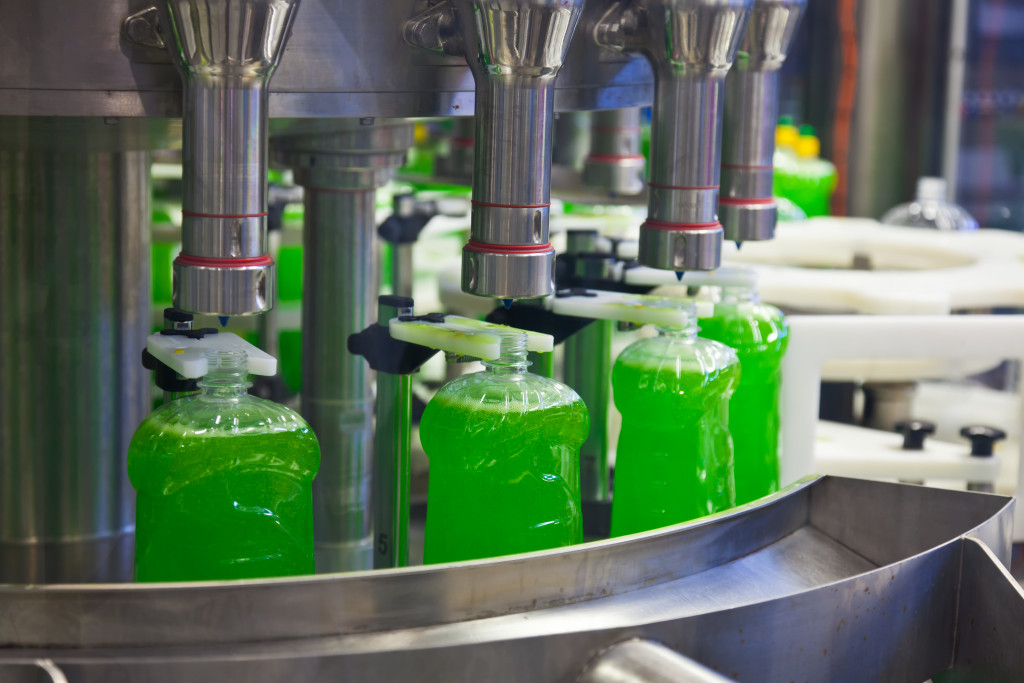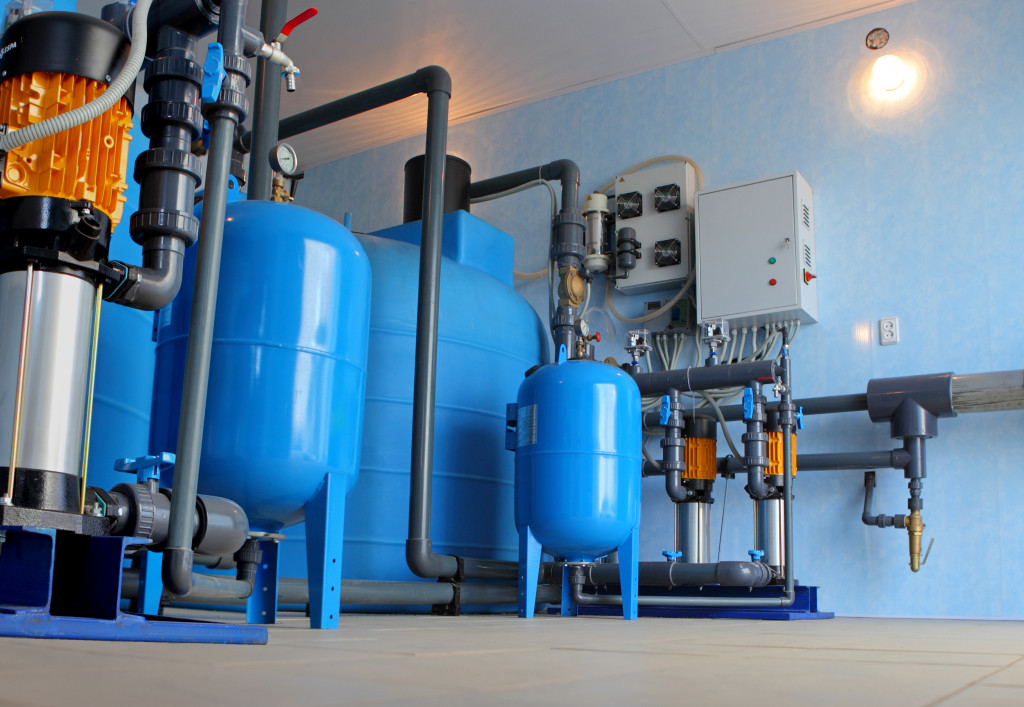Water is among the essential resources for business, as it is necessary for various industrial processes and production. It is also used to cool equipment, clean surfaces, and irrigate crops. Companies rely on water to continue operating and achieving their goals.
For example, businesses in the food industry must use large amounts of water to produce food products such as meat, fruit, and dairy. They need water to grow plants, wash ingredients, create frozen goods, process meats and seafood, sanitize surfaces and equipment, and more. Similarly, companies in the textile industry need it to dye or manufacture clothing and fabrics.
According to the U.S Geological Survey (USGS), an estimated 355 million gallons per day (Mgal/d) was withdrawn by all industries—about 15% of total withdrawals that year across all sectors — making it one of the most heavily used resources in business operations globally. Another study by Water Footprint Network based on global averages between 2000-2014 states that each kilogram (2 lbs.) of cotton produced requires 20 cubic meters (m3)of virtual water—or about 5200 gallons. For example, a single pair of jeans requires about 1800 liters (150 m3)of virtual water, or 472 gallons, to be produced. This shows just how essential it can be for businesses from different industries when trying to sustain operations.
As a result, businesses must know how to utilize and manage their water resources most efficiently and cost-effectively.
Water Storage and Reuse Solutions
The first step to efficient water management is storage. Businesses need to know how much water they use, when they use it, and where they get it from to be efficient. This knowledge can help them plan ways to store and reuse their water to reduce costs and waste.
Businesses should consider the following solutions for optimal water storage and reuse:
Rainwater Harvesting
Companies can use rainwater harvesting systems to collect and store water in tanks for later use. This method is cost-effective, efficient, and environmentally friendly as it reduces strain on public water resources.
Greywater Recycling
By recycling greywater from sinks and showers, companies can save up to 70% of their total water consumption. Reusing water also reduces wastewater treatment costs, which makes it an excellent option for businesses looking to reduce costs. Greywater filtration systems can filter the greywater before reusing it for irrigation or other purposes.
Stormwater Retention
Stormwater retention systems can help businesses capture and store stormwater runoff from light rain or snow, which is then used for landscape irrigation, toilet flushing, or other purposes. Stormwater retention systems are easy to install and require little maintenance once installed.
Water Treatment
Companies must utilize effective water treatment systems to ensure their water is safe for consumption. This includes filtering out contaminants, eliminating bacteria and viruses, and adding essential minerals to the water for better health benefits. Companies should also use reverse osmosis systems to reduce hardness and remove heavy metals from contaminated sources.
By implementing these solutions, businesses can save money on their water bills by reducing their dependence on public resources while protecting the environment.
Water Conservation Solutions
Businesses must also focus on water conservation to reduce their water usage and help conserve the environment. Here are some tips for saving water:
Use Low-Flow Fixtures
Low-flow fixtures such as taps, toilets, and showers can drastically reduce water consumption by up to 40%. This is an easy and affordable way for companies to reduce water usage.
Monitor Leaks
Leaking pipes or faucets can waste thousands of gallons of water daily and cost your company a lot of money. Companies should regularly monitor their plumbing systems to detect leaks and repair them immediately.
Install Smart Irrigation Systems
Irrigation systems with smart sensors can help businesses save up to 70% of their water usage. They can detect soil moisture, weather conditions, temperature, and other environmental factors to determine when and how much water is needed for irrigation.
Replace Old Appliances
Using high-efficiency appliances such as washing machines or dishwashers can reduce water consumption by up to 30%. Companies should replace their old appliances with newer models to help save money on their bills.
By following these tips, businesses can ensure that their operations run efficiently while conserving resources.
High-Precision Equipment

High-precision equipment can help businesses accurately measure their water usage and conserve resources. Water meters, sensors, and data loggers are tools companies can use to monitor their water usage. Companies should also consider installing automated systems that can detect leaks or low flow rates and alert them immediately so they can take corrective actions quickly.
Final Thoughts
That equipment is prevalent in many businesses, from retail and hospitality to manufacturing plants. They can help companies reduce costs and ensure that operations run smoothly.
By using these efficient approaches to water management, businesses can save money on their water bills while protecting the environment. Companies should implement a comprehensive strategy focusing on storage and reuse solutions and conservation measures to maximize efficiency and preserve their resources for future generations.
The key is finding the right balance between cost-effectiveness, sustainability, efficiency, and environmental protection when utilizing liquid resources in business operations. With proper planning, businesses can achieve all of these goals simultaneously.
